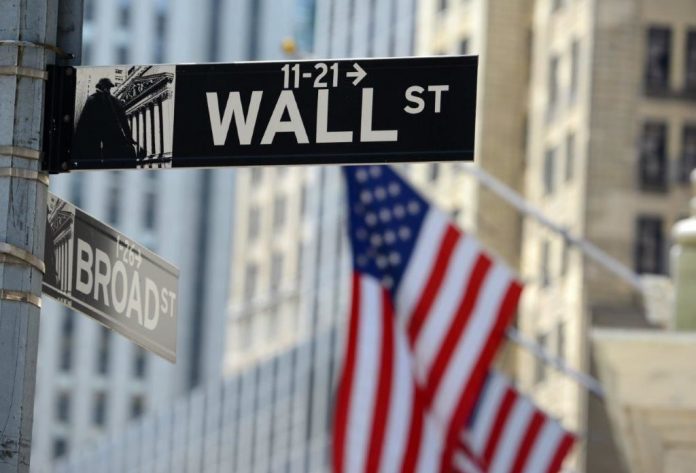By STAN CHOE AP Business Writer
NEW YORK (AP) — Wall Street’s big rally is stalling on Friday, despite a better-than-expected report on the U.S. job market, amid worries about rising U.S.-China tensions and whether Washington can deliver more aid for the economy.
The S&P 500 was down 0.2% in midday trading, after wavering between a small gain and losses earlier in the morning. It’s coming off a five-day winning streak that had brought it back within 1.1% of its record set early this year.
The Dow Jones Industrial Average was down 105 points, or 0.4%, at 27,281, as of noon Eastern time, while the Nasdaq composite dropped 0.5% from its record.
The day’s headline economic report showed that the U.S. job market strengthened by more last month than economists had forecast, with employers adding 185,000 more jobs than the nearly 1.6 million that investors expected to see. Analysts said they found some encouraging trends throughout the report, such as a stronger-than-expected rise in average hourly earnings.
Several areas of the market that tend to rise with investors’ expectations for the economy were doing better. Stocks of smaller companies were rising more than their bigger rivals, with the Russell 2000 up 1%. Treasury yields also climbed.
“Yes, future employment data will likely slow due to more COVID-19 restrictions, but for now you have to be quite impressed with how far we’ve come the last few months,” Ryan Detrick, chief investment strategist for LPL Financial, said in a statement.
Still, the job report also showed that hiring weakened in July after two months of acceleration, and the job market remains far below where it was before the pandemic.
“What is concerning is that the rate of improvement, without a significant vaccine breakthrough, will continue to be more modest and deliberate from here,” Rick Rieder, BlackRock’s chief investment officer of global fixed income, said in a statement.
It’s a very busy day for markets, with investors also focused on Capitol Hill, where Congress and White House officials have been negotiating on a hoped-for deal on more aid for the economy. A marathon meeting Thursday left both sides still far apart on key issues, and they both said the future of talks is uncertain.
Investors say it’s crucial that Washington pump more money into the economy, and quickly, after $600 in weekly unemployment benefits from the federal government expired. The economy has shown signs of improvements since the spring but is still hobbling. Concerns are rising that it could backtrack amid a resurgence in coronavirus counts.
Trump is considering executive orders to address some of the issues if Congress doesn’t reach a deal, such as evictions and unemployment insurance, but critics question how much impact they would have.
Much of the market’s focus was also on moves Trump did make Thursday night: He ordered a sweeping but vague ban on dealings with the Chinese owners of popular social media apps TikTok and WeChat on security grounds.
China’s government criticized the move as “political manipulation.”
Tensions between the world’s two largest economies have been escalating for years, highlighted by the U.S.-China trade war that seemed to have reached at least a temporary truce early this year. But tough talk has continued to flow, with Trump keying in on TikTok in particular recently.
On Friday, the U.S. imposed sanctions on Hong Kong officials, including the pro-China leader of the government, accusing them of roles in squashing freedom in the former British colony.
Wall Street was nearly evenly split between stocks rising and falling.
Energy producers and raw-material companies took some of the sharpest losses within the S&P 500. But T-Mobile US jumped 8.2% for one of the biggest gains in the index after it gave a financial forecast for the second half of the year that topped Wall Street’s expectations.
The yield on the 10-year Treasury erased an earlier dip to rise to 0.56% from 0.53% late Thursday.
Gold slipped, a rare step back following its record-setting run as investors seek safety amid a weak global economy, trade tensions and low interest rates. It lost 1.1% to $2.047.20 per ounce.
Benchmark U.S. crude fell 1.4% to $41.38 per barrel. Brent crude, the international standard, lost 0.8% to $44.73.
In China, stocks in Shanghai lost 1%. The Hang Seng in Hong Kong dropped 1.6%, while Japan’s Nikkei 225 slipped 0.4% and South Korea’s Kospi added 0.4%.
In Europe, Germany’s DAX returned 0.7%, and France’s CAC 40 rose 0.2%. The FTSE 100 in London added 0.1%.
AP Business Writer Yuri Kageyama contributed.




